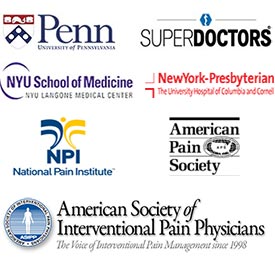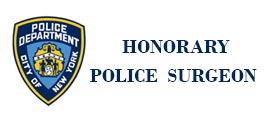Lateral Collateral Ligament (LCL) Knee Injury Pain Management Doctors NYC
At Manhattan Pain and Sports Associates you’ll get the lateral collateral ligament (LCL) knee injury diagnosis, knee pain management, and doctor’s medical care you need to reduce or eliminate your LCL pain. Because when you’re in knee pain — whether it’s from an accident, sport injury, age or ailment — you want fast relief. Appropriate and targeted LCL treatment starts with a proper diagnosis from our NYC knee specialists.
Lateral Collateral Ligament Injury
Your knee joint has four ligaments that hold the four bones in the joint together. The lateral collateral ligament (LCL) runs along the outside part of your knee, connecting your femur, the bone in your thigh, to the fibula, the non-weight-bearing bone in your lower leg. The fibula helps you balance and provides supports to your calf muscles.
An injury to your LCL destabilizes your whole knee. Symptoms can include:
- Pain along the outside edge of your knee
- Swelling in your knee
- You knee locks or clicks when you move it
- The knee feels unsteady when you put weight on it
These symptoms may mean a different injury, as well. To get an accurate diagnosis and to start the treatment that will relieve your pain, you need to see a specialist in knee pain. At Manhattan Pain and Sports Associates, you’ll undergo a thorough exam and testing to get to the source of your pain.
Causes of an LCL Injury
The lateral collateral ligament is a strong fibrous ribbon that rarely breaks down on its own. It takes an injury or trauma, usually a force on the inner edge of the knee, forcing the joint to bend unnaturally outward. This kind of injury stresses and stretches the LCL.
If the force on your knee is sufficient, it can tear the ligament, either partially or fully. Such an incident may do more damage to your knee as well. Your knee is a complex interwoven series of bones, ligaments, tendons and muscles. When one part is injured, others may be too.
Treating a Lateral Collateral Ligament Injury
If your LCL is stretched or only partially torn, it can heal with anti-inflammatory medication, ice, and rest. You have to keep your leg immobilized and keep your weight off it. It may remain tender and weak for months, and if you return to action or sports too soon, you may re-injure your knee.
If the ligament is torn completely, however, surgery may be needed to stabilize the knee and prevent further damage.
Get the Help You Need
If you suspect you have a lateral collateral ligament injury, contact your doctor or a qualified pain management expert, such as Manhattan Pain and Sports Associates. It’s the first step to being pain-free. Explain the injury and what the pain feels like. Your doctor may have you undergo a series of diagnostic tests, such as an MRI to evaluate the LCL. Once a diagnosis has been made you can begin treatment to relieve your pain and heal your knee.
Get the LCL Relief You Need
At Manhattan Pain and Sports Associates you’ll get the knee pain management and care you need to reduce or eliminate your acute or chronic knee pain. Because when you’re in pain — whether it’s from an accident, age or ailment — you want relief. And appropriate and targeted treatment starts with a proper LCL diagnosis.
Your NYC pain management doctor’s goal is to get you back to your normal routine with minimal downtime. After your diagnosis is confirmed, your doctor begins your treatment plan with the most conservative pain relief treatment. You’ll always receive non-invasive pain relief before your doctor turns to more invasive procedures like surgery.
Get the LCL Injury Pain Relief You Need
Your NYC LCL pain management doctor’s goal is to get you back to your normal routine with minimal downtime. After your diagnosis is confirmed, your doctor begins your treatment plan with the most conservative pain relief treatment. You’ll always receive non-invasive pain relief before your doctor turns to more invasive procedures like surgery.
Manhattan Pain and Sports Associates
51 East 25th St, 4th Floor, Ste B
New York, NY 10010
(212) 533-3954



